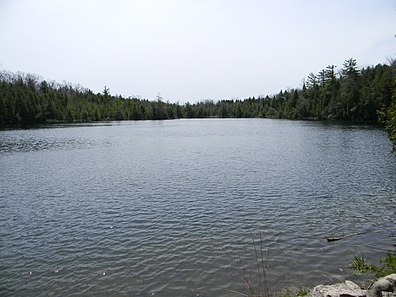
- Details
- By Randy Kritkausky
Guest Opinion. An international panel of scientists, on the verge of driving “a golden spike” into the heart of Mother Earth and Indigenous history, has shown wisdom in backing off on a premature declaration of human hubris and Euro-American cultural arrogance.
Several global scientific organizations had shown signs of being on the verge of declaring a new era in the Earth’s history, the so-called “Anthropocene.” That declaration would have argued that the entire planet and its natural systems, including lands and ecosystems occupied and cared for by Indigenous Peoples, are now largely shaped by or even entirely dominated by anthropocentric activities and cultures.
The Anthropocene term has gained currency in environmental circles and mainstream journalism. However, for the designation to become “official”, the scientific bodies that name geological eras needed to give their approval.
The final stages of decision making about the renaming of our current era focused on Crawford Lake in Ontario, Canada. It was selected because of its uniquely delineated sediments which allow scientists to measure and mark the deposition of human made substances with great precision. A great deal of fuss was made about the detection of minute traces of plutonium, which some scientists were arguing is a demonstrable and indisputable signal, a “golden spike,” or inflection point marking a universal human transformation of all of nature.
Discussion of how and why Crawford Lake was selected occasionally mentioned other discoveries in the lake’s sediment. Most interesting was pollen from corn grown by Indigenous People who had a long presence on the lake’s shore. Some grains of corn were also found. A museum, Crawford Lake Iroquoian Village & Conservation Area, offers the public an opportunity to visit a replica of the 15th century Indigenous settlement that existed on the lake’s shore.
Crawford Lake’s Indigenous history was at risk of being erased and overwritten like a page of Medieval vellum whose message is scrubbed away so that a new story can be inscribed. The threatened erasure was too painful. I wrote to the Anthropocene Working Group (AWG) of the International Commission on Stratigraphy in July of 2023 suggesting that their proposed designation of “the Anthropocene” is premature, and more importantly, risks drowning out a desperately needed centuries old positive story of humans working as stewards, not dominators of nature.
Much to my wonder and surprise, several members of AWG responded to my letter within hours. The letter was forwarded to an Indigenous partner of the AWG purportedly working on reconciling the historical mission of the Crawford Lake Iroquoian Village and the site’s new notoriety as exhibit number one in an ongoing and unresolved debate about the future of our planet’s viability. Two philosophers wrote to me from Vienna. They had received a forwarded copy of my letter. Their concern was that the term “Anthropocene” is Eurocentric, and part of a tendency to assume that European culture has become dominant everywhere and is the only important value set worthy of attention in scientific discourse.
Quite unexpectedly, the renaming process has been halted. For now, Crawford Lake will remain a monument to the ability of the two-legged to live in harmony with Mother Earth. This is good news. But Indigenous Peoples must continue to push back on this attempted act of erasure of our history. It may come up for a revote.
We should help the International Commission on Stratigraphy to understand that their scientific endeavor is more than a technical investigation. It would inevitably become part of the media’s attempt to tell the story of our time and our possible futures. We must remind them that storytelling is how we all transmit wisdom from generation to generation. We must awaken them to the fact that, in the 21st century, science is sometimes a story that we tell ourselves about ourselves. We, both Indigenous and mainstream people, cannot risk telling ourselves that it is game over as far as Mother Earth being a vibrant and self-healing system is concerned. We, Indigenous Peoples, must keep telling our story of how a small percentage of the world’s population, living on a small percentage of the world’s territory, is protecting 70% of the world’s biodiversity, and keeping the planet from slipping into the Anthropocene.
Randy Kritkausky is an enrolled member of the Citizen Potawatomi Nation, co-founder of ECOLOGIA, an international environmental organization, and author of "Without Reservation: Awakening to Native American Spirituality and the Ways of our Ancestors."
Help us defend tribal sovereignty.
At Native News Online, our mission is rooted in telling the stories that strengthen sovereignty and uplift Indigenous voices — not just at year’s end, but every single day.
Because of your generosity last year, we were able to keep our reporters on the ground in tribal communities, at national gatherings and in the halls of Congress — covering the issues that matter most to Indian Country: sovereignty, culture, education, health and economic opportunity.
That support sustained us through a tough year in 2025. Now, as we look to the year ahead, we need your help right now to ensure warrior journalism remains strong — reporting that defends tribal sovereignty, amplifies Native truth, and holds power accountable.
 The stakes couldn't be higher. Your support keeps Native voices heard, Native stories told and Native sovereignty defended.
The stakes couldn't be higher. Your support keeps Native voices heard, Native stories told and Native sovereignty defended.
Stand with Warrior Journalism today.
Levi Rickert (Potawatomi), Editor & Publisher

